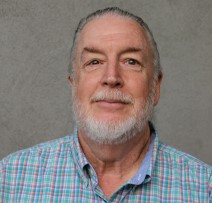 To Tempe resident Damian Kirwan, helping a child with significant physical, mental or emotional trauma, or perhaps all three, isn’t rocket science. Rather, in his 45-year experience in social work, Kirwan says, it’s more like rebuilding a home.
To Tempe resident Damian Kirwan, helping a child with significant physical, mental or emotional trauma, or perhaps all three, isn’t rocket science. Rather, in his 45-year experience in social work, Kirwan says, it’s more like rebuilding a home.
“You start with the foundation, then move up to the rafters and roof, where these kids find love and belonging and self-esteem, and finally you do the finishing touches on pursuing their hopes and dreams,” he said. “Some of these kids have rickety walls, but they can get help to work on that, piece by piece, to build a life that’s beautiful and lasting.”
Kirwan is president of Human Services Consultants, which since its founding in 2000 has become the largest therapeutic foster-care agency in Arizona. He and his team have helped more than 500 children, primarily ages 6 to 17, who have large missing chunks in their foundation, to become healthy, productive adults.

More than 100 of these children with moderate to severe behavioral and emotional challenges have been adopted, or their foster parents became their legal guardians, through HSC, he said. Some aged out of the foster-care system and moved away or are in college, but many still come home for Christmas or in the summer.
That’s a special point of pride for Kirwan, especially in November, National Adoption Month. The commemoration supports activities that promote the adoption of children and youth from foster care into permanent, loving families.
It dates to 1976, when former Massachusetts Gov. Michael Dukakis announced Adoption Week to promote awareness of the need for adoptive families for children in foster care. Former President Bill Clinton expanded National Adoption Week, declared by the late President Ronald Reagan in 1984, to National Adoption Month in 1995.
According to Casey Family Programs, 13,329 Arizona children younger than 18 were living in foster care in 2019. Of them, 45 percent were reunited with their families, 36 percent were adopted, 8 percent live with relatives or guardians and 9 percent aged out.
“The children who come to us have had an average of 12 placements before they arrive,” Kirwan said.
A majority of HSC’s children are referred by the Arizona Department of Child Safety, Kirwan said, but some come via hospitals and residential treatment centers. Any family member of a child enrolled in behavioral health services also can seek therapeutic foster care.
DCS qualifies and licenses therapeutic foster parents to provide stable homes for children and adolescents with significant emotional, behavioral or social needs. HSC, which has trained about 275 therapeutic foster parents over the years and currently has 55 children placed in 45 homes, monitors the state licenses.
Janet Farmer joined HSC as a therapeutic foster parent three years ago, and has since fostered six children, including the three girls who currently live in her Goodyear home. Farmer, who has two grown sons, is a longtime preschool teacher who began doing respite work for other HSC therapeutic foster parents.
“You can’t treat these children the same way you treat your own kiddos,” she said. “It’s not a big deal to change a schedule with your own, but with these kids, who haven’t had stability, you have to keep in mind consistency. You can’t say, ‘You can do this today, but not tomorrow.’”
Farmer and other therapeutic foster parents quickly lay a solid foundation — a home environment that meets a child’s basic survival needs of air, water, food and sleep.
“These kids have to learn that it’s OK to get a drink of water whenever you want to, that it’s OK to use the bathroom in the middle of the night,” Kirwan said, “because where they came from, it wasn’t.”
Because these children require 24/7 support and supervision, it’s important to Kirwan that therapeutic foster parents receive significant support, too. With an average burnout time of 2 1/2 years, therapeutic foster parents need to know that “we’ve got their backs,” he said.
HSC is careful about matching and placing traumatized children with the best-suited home, first taking stock of a potential family’s biological children, their schedules, even their pets.
“We had two brothers who had been mauled by a dog, and we couldn’t put them in a home with pets,” Kirwan said. “Eventually, much later, therapy dogs were brought into the home so the children could see, ‘What does it look like when a dog is anxious? Or when it is happy to see you?’”
Most therapeutic foster parents who do adopt don’t begin with that mindset.
“Many say, ‘Our kids are grown and we have an extra room, and we want to make a difference,’” Kirwan said. “That’s the thing that starts the motion toward legal guardianship or adoption.”
Farmer says she’ll always be Mom to her three girls — and as many other children who come to her — because the rewards far outweigh the challenges.
“Don’t be afraid, just jump in,” she said. “The kids need you so much.”
Contact HSC at hscaz.com or 602-279-1427.


